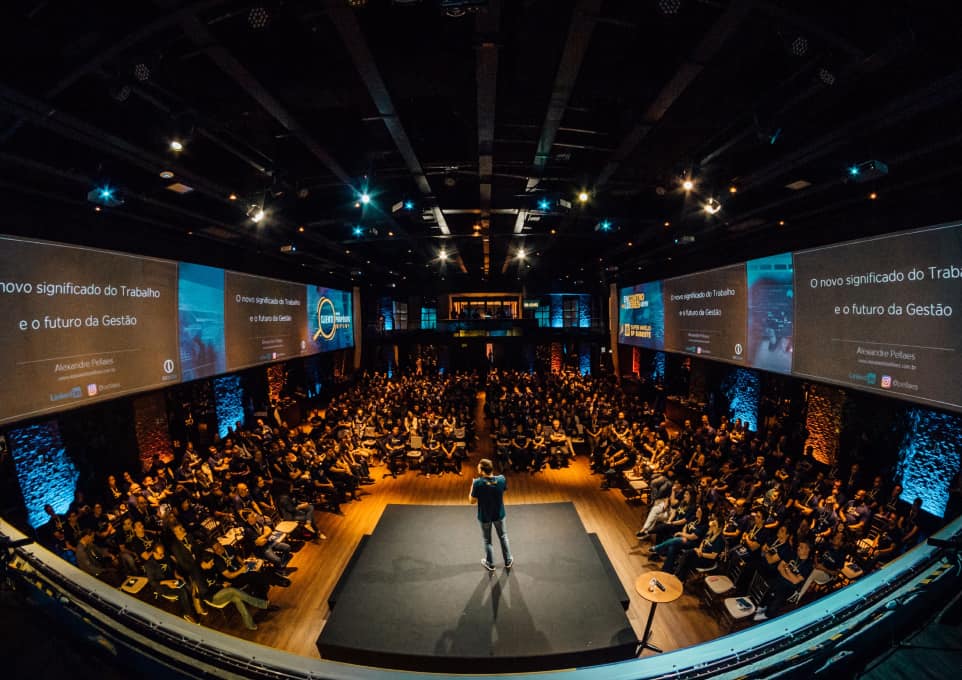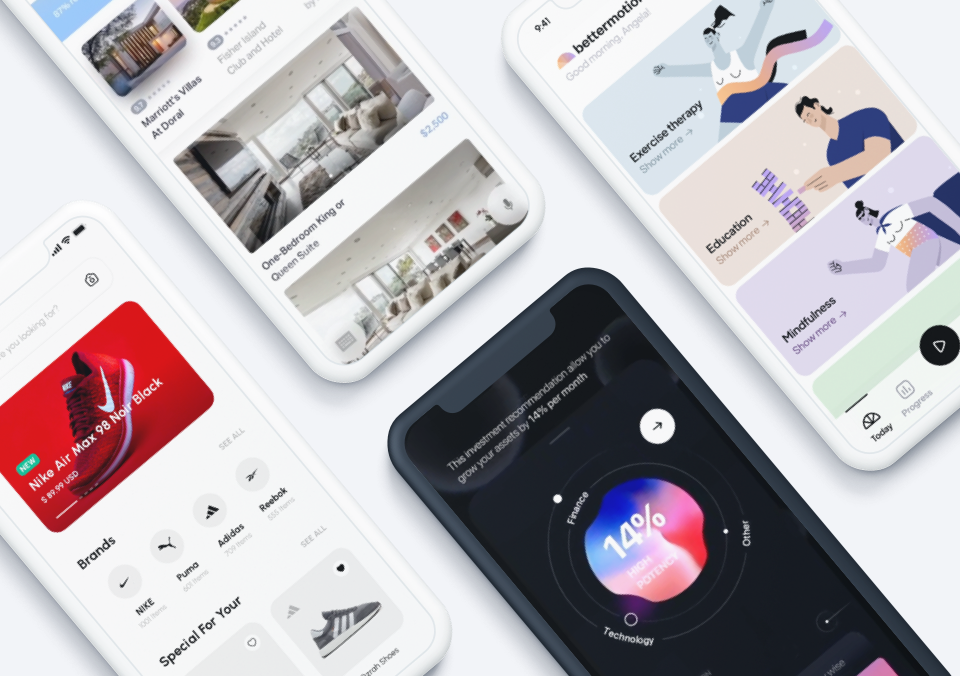Creating an app takes time, money, and confidence. While we previously discussed exactly how hard it is to make an app, we wanted to discuss the other side: how the app creation process can be more efficient. We talked with app developers large and small that have successfully brought apps to market to accomplish this. With their mobile app creation tips, aspiring entrepreneurs (whether technical or not) can avoid the mistakes they made and get their app into customers’ hands faster. Let’s explore their strategies to create an app.
Build a Team
Diane Hamilton, co-founder & Managing Partner at Binary Formations, has created 18 apps across iOS and macOS with her team. She’s won App Store Editors’ Choice, Best App of Year, and enjoyed countless App Store features. All of this was possible because she built the right team to bring great ideas to life faster. Nearly anyone with the right amount of persistence can build an app and get it live on the App Store, but “If the goal is to provide a valuable, quality app that produces revenue, this is extremely difficult on your own and highly unlikely but doable, especially if you can build a team.”
Test Ideas Early
Hamilton urges app creators to “Validate the market before spending a dime. Don’t get wrapped up in the idea.” Just because you think an app will succeed doesn’t mean the market is ready for it. Taking the time to talk to potential customers and verify that they are willing to use and pay for an a§pp like yours will save headaches down the road. This will also ensure that your business model is airtight. You might be able to find investors with an idea, but providing proof that your app is already well-received before it’s even launched will make seed fund investors line up.
Get Technical Help
Not all app creators need to be developers. There is value in creating apps from multiple backgrounds, but if you can’t code, you’ll need a close partner who can. This will help you save time and money and have a sounding board to figure out what is technically feasible.
Be Ready for a Marathon
One myth we want to make sure to debunk is the app creation timeline. Creating an app is not a walk in the park, even for successful developers. You aren’t going to start prototyping an idea that comes into your head today and hit number one on the iOS charts next week. Sure, the early days of mobile apps minted overnight sensation, but now there are endless competitors vying for consumers’ attention and storage space.
Hamilton explains, “The days of overnight hits are gone, but there is room for good quality apps that solve a problem, but they take time and experience.” Taking the time to differentiate and test with potential users will make a warm reception at launch that much more likely. In the early days of the app stores, “build it, and they will come” was much easier to accomplish. Now you have to put your “why” front and center. Why should consumers pay for your app? Why should they choose you over a competitor? What does your offering bring to their life?
Figuring out the answers to these questions and shipping the first iteration will likely take longer than expected, and soon after, you’ll realize how many tweaks are still needed. Salman Al Jimeely, Software Engineer and creator of the Sellou app, offers a bit of caution to app creators: “It’s incredibly hard to get to a final polished product. The finish line is almost always a month (or six) away. This is because software is almost never ‘finished.’ There’s tons of debugging and feedback required to reach the finish line and get the product to a place where everyone is comfortable using it. The idea isn’t the hard part. It’s translating an idea into a final product – that’s very hard.”
Staying honest when you create an app is important with all the #hustle mentality out there. Getting into a state of flow is always the goal, but you’ll need to create balance to actually reach the finish line. Al Jimeely offers words of encouragement to aspiring app developers: “Millions have done it before! Remember, it’s not impossible, and you’re not alone. Celebrate small victories, work through problems at your own pace.”
As an added bonus, Al Jimeely reminds app creators, “You’ll learn more about yourself: Coding a project from scratch involves a LOT of trial and error. The more you struggle, the more you will grow.” Creating an app that succeeds in the market is inherently hard, and no matter the outcome after launch, the skills and perseverance you gained will be well worth the time and effort.
Save Time with Hacks
Creating an app means listening to customers before, during, and after launch. They might have too many feature requests to comply with them all, but some that come up often are worth working on. Many app developers start with one app at a time, either iOS or Android. Unless there is a ton of funding and staff behind the app, creating two at once is not the usual course of action. Monitoring how the first app does is a good test to see if it’s worth the time and expense of creating the other.
Neil Parker, the Co-Founder and CTO of Lovecast launched an iOS app first and found that “one recurring question we had was when our Android app would be released. As it stood, I was still struggling to quickly add essential features to our iOS app.” In order to give customers what they wanted without breaking the bank, Parker found a Google framework that enabled him to write mobile app code that worked across platforms. He compared it to building a structure with Lego blocks instead of molding each block first in order to eventually build it up.
He continues, “Now with our app re-written, we were able to move quickly and keep operating costs low. We didn’t need to maintain multiple apps, and when we wrote a new feature, it worked everywhere. Even better, we were even able to launch a web version of our app with just a few extra lines of code. What might have been months of work ended up being less than a week of work.” Parker’s experience shows that with the help of tools out there, it’s possible to create an app efficiently instead of wasting resources by going about app creation the old-fashioned way.
Keep up with the Rules of the App Stores
Just as mobile app technology is always changing, so are the app stores. Starting from the first day of development, app creators have to make sure that their apps meet the ever-changing requirements of Apple and Google. Parker mentions, “One thing that all mobile developers eventually run into is the dreaded ‘app rejected.’ One of the times this happened to us was before a big feature launch. Worst of all? They didn’t block our app for the new feature we added, but because they didn’t like the color we used on the ‘Sign in with Apple’ button, which we had been using for months! So you’ll definitely run into issues like this, and I guess you’ll need to roll with the punches. As a small company, you don’t get much leverage here. It’s either the big guy’s ways (Apple/Google in this case), or you’re out.”
In Parker’s example, even something that previously worked on the app stores might get added to the no-go list at some point. Staying up to date on what will and won’t fly on the app stores is certainly a full-time job, but it is well worth the effort when you don’t have to stress to update something when your app is unexpectedly yanked from one of the app stores. That could lead to lost revenue and customers switching over to a competitor.
Closing Thoughts
Creating an app is not an easy feat. Your first or second, or tenth idea might not be a winner. It is highly respectable to know when to kill bad ideas and when to figure out a better approach to the problem you’re working on. Know when to stay the course, when to try a different path, and when to give up and move on to something else.
The strategies above aim to help you save time and validate your ideas faster when creating an app. What tips do you have to create an app efficiently? Let us know by tweeting us @Protoio.
Proto.io helps you bring your idea to life in no time, with no coding skills required. It’s ideal for UX designers, entrepreneurs, product managers, marketers, students, and anyone with a great idea. Sign up for a free 15-day trial to start building your first prototype today!









